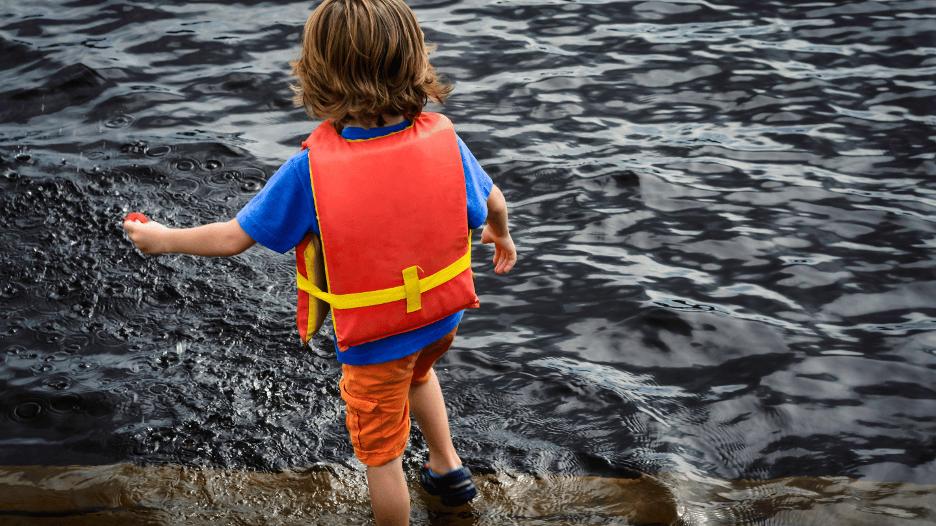
Water safety 101: how to stay safe at the pool, beach, or lake.
Summer's finally here and there's nothing quite like cooling off in the water on a hot day. Whether you're planning a pool party, beach vacation, or lake getaway, water activities are some of the season's best moments. But they can turn dangerous fast if you're not prepared. That’s why you need to brush up on water safety.
Water activities come with their share of bumps and scrapes. Pool decks get slippery, currents can be stronger than they look and sometimes accidents just happen. The good news is that most water-related injuries are minor, like cuts, bruises, or the occasional ear infection.
But knowing what to watch out for helps you avoid the more serious stuff and keeps your summer plans on track.
This guide covers everything you need to know: the most common water hazards to watch for, essential water safety rules every family should follow and when a water-related injury needs professional medical attention at CityMD.
Top water safety hazards to watch out for this summer.
No matter where you're planning to splash around this summer, knowing what to watch out for can save you from a trip to urgent care.
Here are a few water-related risks to keep on your radar:
- Slippery pool decks. Wet surfaces can lead to slips, falls and injuries, especially for kids who love to run near the pool.
- Diving accidents. Shallow water or unmarked depths can result in head or neck injuries if someone dives without checking the depth first.
- Unsupervised swimming. Accidents happen quickly when no one is watching. Young swimmers should always be within arm’s reach of a responsible adult.
- Rip currents and waves. At the beach, strong currents and rough surf can sweep swimmers out faster than they realize.
- Boating accidents. Lack of life jackets, distracted operation, or rough conditions can turn a fun outing into a dangerous situation.
- Hidden underwater hazards. Lakes and rivers can have rocks, debris, or sudden drop-offs you can’t see from the surface.
Keeping these water safety hazards in mind helps you make smart choices before you even get your feet wet.
Water safety rules every family should follow.
A little preparation goes a long way when keeping adults and kids safe around water.
These water safety rules might seem a bit obvious, but they're the difference between a great day and a scary one:
- Always swim with a buddy. No one should swim alone, even experienced swimmers. Having someone nearby can be a lifesaver. Literally.
- Designate a water watcher. At gatherings, assign an adult to keep eyes on swimmers at all times. Rotating every 15-30 minutes helps keep attention sharp.
- Know your limits. Stick to the shallow end if you're not a great swimmer. For kids, use flotation devices only as a backup, not a substitute for supervision. You still need to stay close.
- Learn CPR and basic first aid. In an emergency, knowing what to do before help arrives can make all the difference.
- Use life jackets in open water. On boats, kayaks, or in any open water, everyone needs a proper Coast Guard-approved life jacket. Even for just a quick paddle out on the lake.
- Check water conditions. A quick look at the surf report or rip current warnings before you go can save you from getting caught in rough or risky conditions.
Again, these water safety tips may seem simple, but they are essential. Follow them and you can actually relax and enjoy your time in the water instead of worrying about what could go wrong.
When a water injury needs medical attention.
You can handle most summer bumps with a towel and a Band-Aid. But sometimes you'll wonder, "Should I be worried about this?" Trust your gut. When in doubt, get it checked out.
Visit your local CityMD urgent care if you or your child experiences:
- Head or neck pain after diving or rough play in the water
- Cuts or scrapes that are deep, dirty, or won’t stop bleeding
- Ear pain that starts after swimming. This could be swimmer’s ear
- Trouble breathing, chest tightness, or dizziness after swimming
- Signs of infection (like redness, swelling, or pus) from a wound or scrape
- Fever, vomiting, or rash that appears hours or days after swimming in natural water sources
At CityMD, we can treat everything from minor injuries to possible infections and help determine if more specialized care is needed.
Catching problems early means you can quickly get back to your summer fun. Plus, you'll actually be able to enjoy the rest of your summer instead of worrying whether that cut is supposed to look like that.
Final thoughts on water safety this summer.
Water safety doesn't have to be complicated or scary. A few smart precautions mean you can actually relax and enjoy your time in the water.
CityMD makes it easy to get checked out. No appointment, no waiting weeks to see your regular doctor. Just walk in or go online to check in first. We're open every day of the week.

We’re ready to care for you.
Visit any CityMD urgent care location in your community today for an evaluation with one of our expert providers.